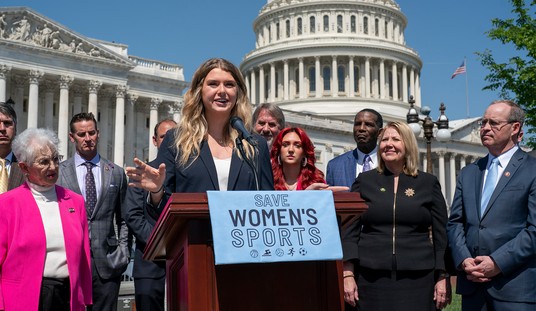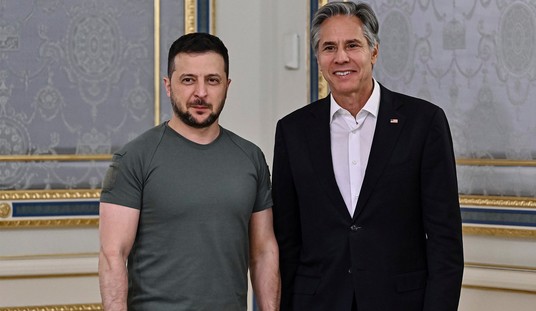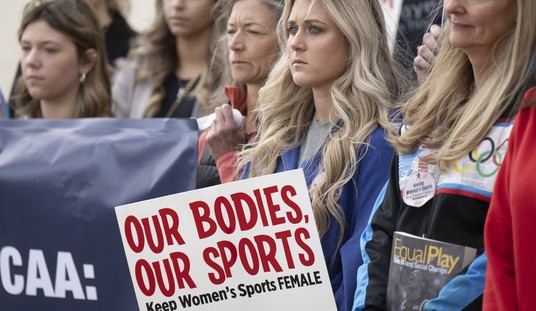Has there been any more dire need of PR flacks than Planned Parenthood’s after yesterday’s undercover video? The media sat in stunned silence for hours afterward, awaiting signals on how to proceed with coverage. Their first internal attempt at spin turned out to be a hot mess, so they began to bring in the consultants. Mark Hemingway at The Weekly Standard brings us the delightful Take Two:
Aborted pregnancy tissue donation and research are humanitarian undertakings that hold the potential to cure disease, save lives, and ameliorate suffering. Some providers choose to offer this service to patients; in some cases patients are seeking tissue donation, and in other cases patients are informed of the option and choose tissue donation.
“Undertakings”? Oh, my. Perhaps someone needs a new thesaurus, but “undertakings” is exactly the business of Planned Parenthood in the hundreds of thousands a year. That language underscores the hypocrisy of claiming to conduct “humanitarian” activities based on the destruction of human beings. It’s a ghastly and ghoulish argument even if no money changed hands, but especially so when the organization’s top medical officer cooly discusses cash exchanges for intact organs while sipping wine with her lunch. And let’s not forget the dichotomy of claiming that aborted babies are nothing but “clumps of cells” on one hand, and marketing intact organs on the other.
This new defense comes from Camino Public Relations, whose two-pager attempts to rebut the undertakings of the undercover video. They offer a number of interesting straw men and rationalizations to rebut, some of which bear passing resemblance to the actual issues raised in the video. For instance, here’s Camino’s suggestion on how to rebut notions of selling “fetal parts” (actually referred to by critics as “organs from babies”), emphasis mine:
Rather than speculating about the cost of selling “fetal parts” as written in the Washington Times the transcript indicates that Deborah Nucatela was speculating on the range of reimbursement that patients can receive after stating they wish to donate any tissue after a procedure.
Really? The patients get those payments? Dr. Deborah Nucatola puts it quite differently in the video, as the transcript from Center for Medical Progress shows:
PP: You know, I would throw a number out, I would say it’s probably anywhere from $30 to $100 [per specimen], depending on the facility and what’s involved. It just has to do with space issues, are you sending someone there who’s going to be doing everything, is there shipping involved, is somebody gonna have to take it out. You know, I think everybody just wants, it’s really just about if anyone were ever to ask them, “What do you do for this $60? How can you justify that? Or are you basically just doing something completely egregious, that you should be doing for free.” So it just needs to be justifiable. And, look, we have 67 affiliates. They all have different practice environments, different staff, and so that number—
Buyer: Did you say 67?
PP: 67.
Buyer: Okay. And so of that number, how much would personality of the personnel in there, would play into it as far as how we’re speaking to them—
PP: I think for affiliates, at the end of the day, they’re a non-profit, they just don’t want to—they want to break even. And if they can do a little better than break even, and do so in a way that seems reasonable, they’re happy to do that.
It’s not the patients that receive those payments — it’s the affiliates. And if the affiliates can “do a little better than break even,” they’re “happy to do that” as long as they can rationalize the charges. In other words, they’re happy to make a profit off the sales of intact organs, when they can, and when they don’t get caught doing so.
The final couplet from Camino is a defense against illegal activity:
Inaccuracy: accuses Planned Parenthood of illegal practices regarding tissue donation.
Planned Parenthood follows all laws and insists on high standards of care.
Camino offers a similar defense in the second paragraph, but note the last clause, again emphasis mine:
Federal, and frequently, state laws govern these activities, as well as ethical considerations. Patients provide specific consent to tissue donation. Planned Parenthood affiliates are eligible by law to receive reimbursement from tissue donation entities for the additional expenses related tissue donation, which can vary based on individual circumstance. No individual staff member or provider receives reimbursement; any reimbursements are provided to the affiliate.
The affiliate gets the payment, not the patient. This contradicts entirely what Camino argues later about the patients getting reimbursed. But even apart from that, Nucatola’s description of Planned Parenthood training demonstrates a violation of federal law:
https://twitter.com/bzyouthdirector/status/621175334780600320
Nucatola describes how she herself violates this law, and how Planned Parenthood trains providers to do so as well:
Buyer: So, I guess cell viability is a concern right? So, some of the intactness of the specimens is a pretty big deal.
PP: Yea, so that’s where we kind of get into an ethical situation, because what I think most providers don’t want to have do, they don’t want- In terms of the steps and the preparation, and getting them to the actual procedure, you know, if you really want an intact specimen, the more dilation, the better. Is the clinic gonna you know, put in another set of laminaria to do something different? I think they’d prefer not to. For example, what I’m dealing with now, if I know what they’re looking for, I’ll just keep it in the back of my mind, and try to at least keep that part intact. But, I generally don’t do extra dilation. I won’t put in an extra set of laminaria, or add an extra day, that’s going to add significant cost of expense to everybody. Basically, if you need to add another set of laminaria, and have the patient come back another day, if you provide procedures enough days in a row that you can do that, then you know, that’s a whole ‘nother consideration. In general, I’d say most people, unless there’s a specific research protocol that’s been I.R.B. approved, try to avoid that.
And later …
PP: Exactly. So then you’re just kind of cognizant of where you put your graspers, you try to intentionally go above and below the thorax, so that, you know, we’ve been very good at getting heart, lung, liver, because we know that, so I’m not gonna crush that part, I’m going to basically crush below, I’m gonna crush above, and I’m gonna see if I can get it all intact. And with the calvarium, in general, some people will actually try to change the presentation so that it’s not vertex, because when it’s vertex presentation, you never have enough dilation at the beginning of the case, unless you have real, huge amount of dilation to deliver an intact calvarium. So if you do it starting from the breech presentation, there’s dilation that happens as the case goes on, and often, the last, you can evacuate an intact calvarium at the end.
And again …
PP: No, it’s just what you grab versus what comes out. It doesn’t make anything any different. The other consideration I think you guys need to make, is who does the training. Because when they do the training, you’re basically guaranteed to not get anything.
Buyer: Oh, you mean when it’s a provider who’s been training.
PP: One who’s training, who’s basically doing the procedure, it comes out in a thousand- you’re not going to get anything intact, so. What we did for a while, and I think it worked pretty well if there’s a trainee, I’d say, any research case, I’ll do. And as you get better, I’ll let you do more, but we really need to do this, intact.
According to Nucatola, Planned Parenthood trains its staff to change the procedures when they need to transfer fetal organs — and whether one considers that a sale or a paid-for donation, that in itself violates federal law. Nucatola’s inadvertent deposition exposes a great deal of wrongdoing. Even the best PR flacks can’t cover this up. They may, however, give much of the media enough of an excuse to ignore it while they chase bakers and photographers who choose not to participate in culturally mandated celebrations.








Join the conversation as a VIP Member